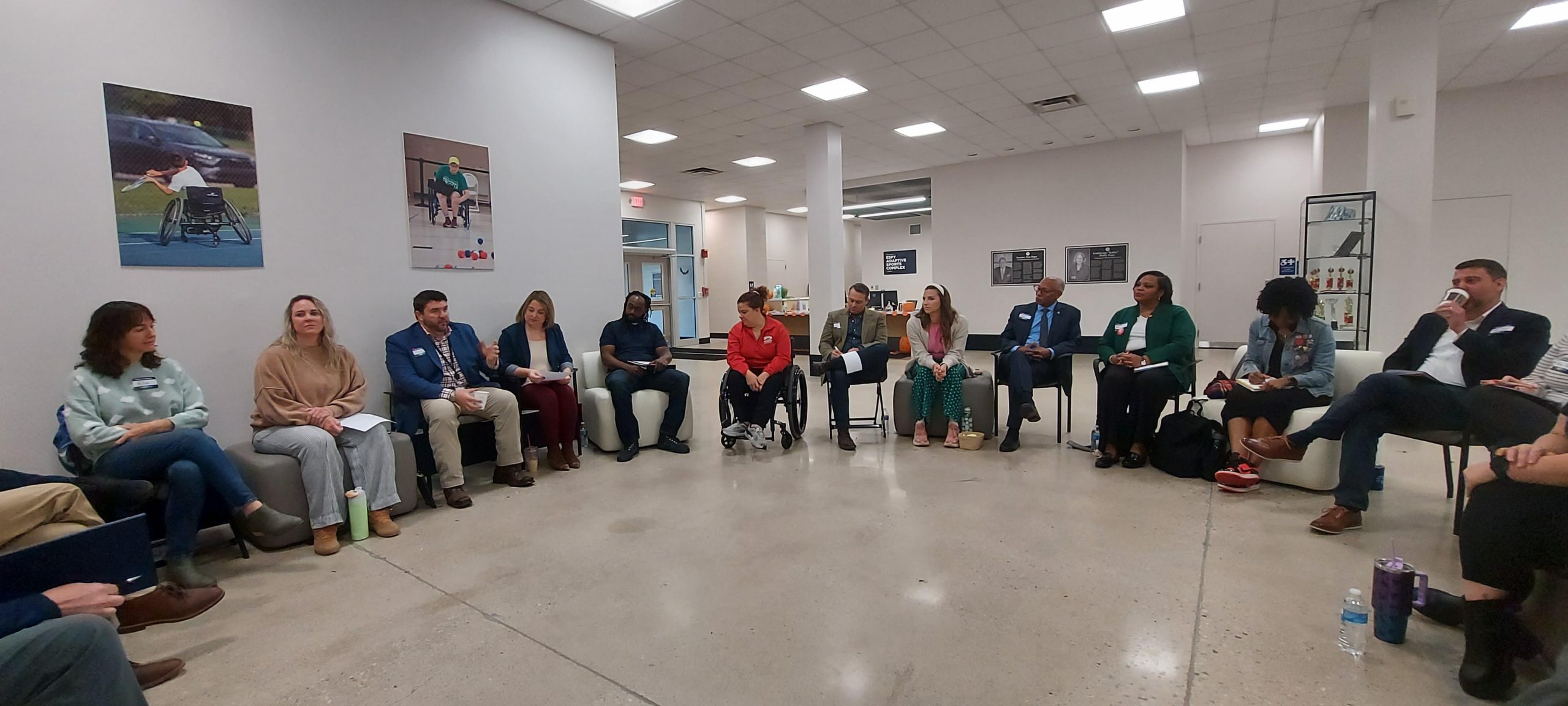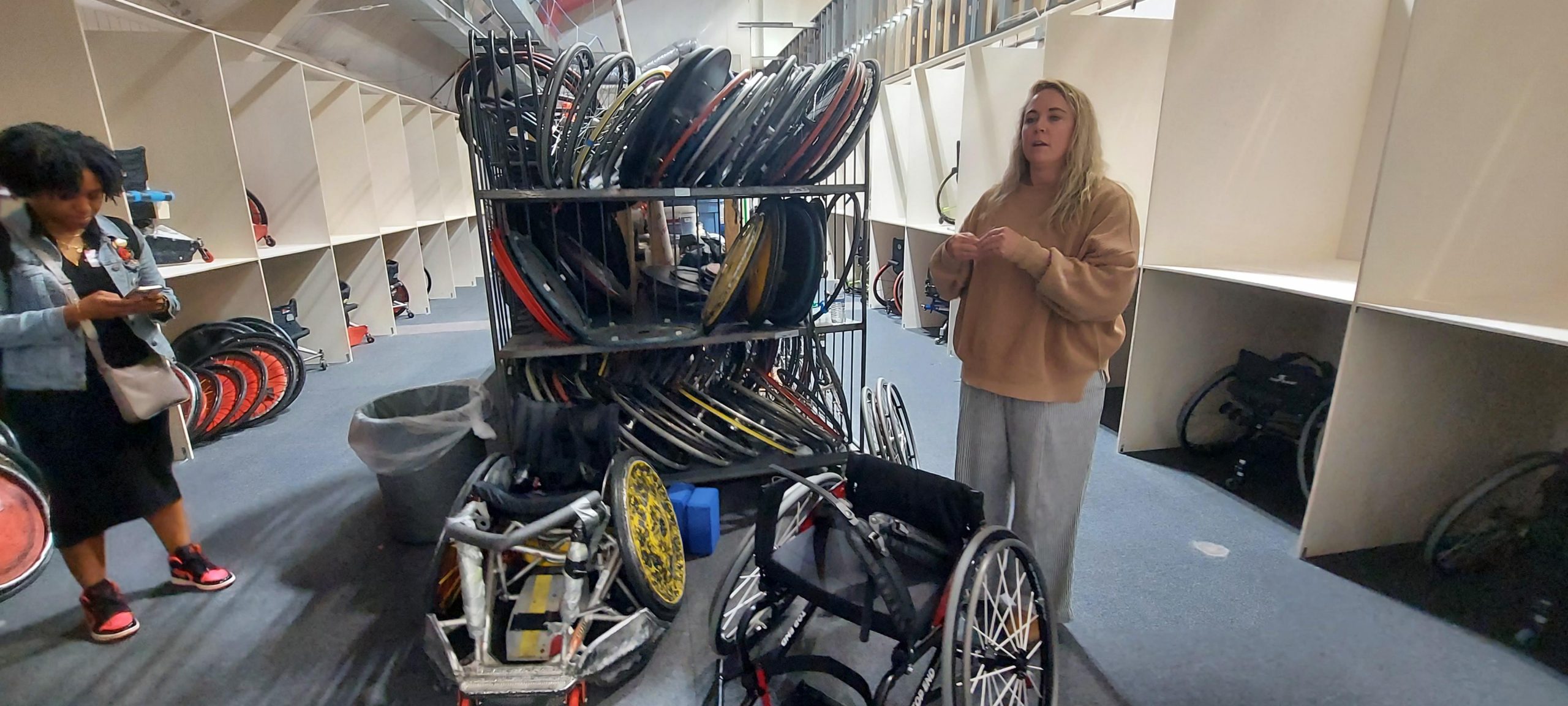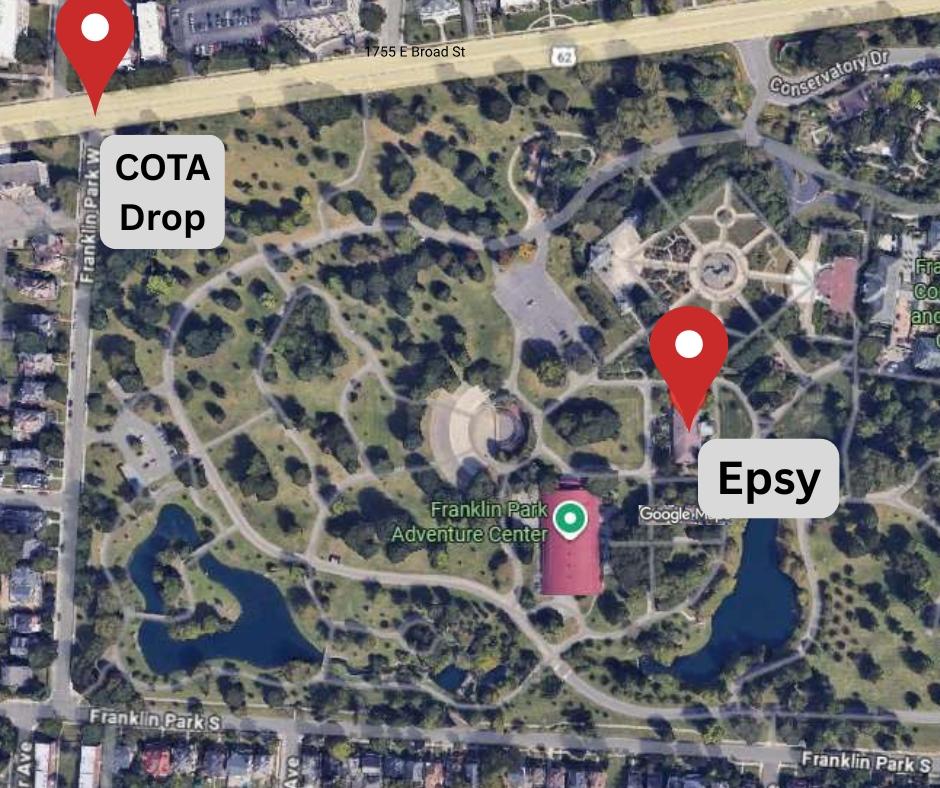Table Talk on Accessibility

Photo by Theresa Garee
Photo by Theresa Garee
By Theresa Garee
Messenger Editor
The Columbus Foundation hosted The Big Table on Oct. 21. The Big Table is an annual community-wide day of conversations designed to inspire civic engagement and connection.
Different locations host several ‘table talks’ and individuals are welcome to register and participate in as little or as many as they would like.
The newly remodeled Epsy Adaptive Sports Complex of the Columbus Parks and Recreation Department hosted a conversation titled, “Adaptive Programming: Ensuring Access to Recreation.” The Epsy Adaptive Sports Complex is primarily used for the Therapeutic Recreation Program, which sponsors recreational activities modified to meet the needs of individuals with disabilities.
Individuals from a variety of businesses and nonprofits who specialize in accessibility joined the conversation lead by Therapeutic Recreational Manager Andrea Norris. Norris had prepared several questions to ask the group in relation to accessibility for those with disabilities.
Attendees broke the ice by sharing their work, connection to adaptive sports and their hobby.
The next question Norris presented was, ‘What does access to recreation look like to you?’
Answers centered around barriers that might impede access to recreation for those with disabilities. Barriers like transportation, resources, and affordability.
“Time,” Liz Moody of Star House said. Further explaining that time not only for the athlete but also the providers of the athlete due to work schedules or transportation barriers. Star House is an organization for displaced youth to young adults.
Norris then took the conversation a step further by asking, “What does it feel like to be included?”
Director of Communications, Advocacy and Community Relations for the Franklin County Board of Developmental Disabilities Ryan Phillips shared that sometimes inclusion can be on an individuals’ part as well by asking, “How have I extended the invitation to help others feel included.”
Therapeutic Recreation Specialist Rae Nutter shared that sometimes helping others feel included is about offering someone time to do what they enjoy.
“That way when they show up, they are their whole self,” Nutter said.
Other ways participants shared how to help other feel included is to ask questions, allow children to ask questions and be the advocate in the room.
The conversation about disabilities also included disabilities that are invisible to the naked eye.
Nutter reminded the table that the football huddle was invented by deaf quarterback Paul D. Hubbard, who played 1892 to 1895.
Participants were able to discuss what would make a program ideal for those who need accessibility.
Many at the table agreed that a program would be ideal when it includes words that recognize and empower those with disabilities.
“Providing access to all and at different levels,” Travis Gallagher of Nationwide Children’s Hospital Sports Medicine said.
The conversation concluded with sharing of success stories, personal and professional, in the realm of accessibility.
The Epsy Adaptive Sports Complex is a success story in itself.
Its recent renovation, thanks to grants, enabled the facility to upgrade their bathrooms to provide service to those with wheelchairs, both manual and electric, as well as services for those who have service partners. Whereas, many businesses have ADA compliant bathrooms, the complex goes above and beyond to meet needs.
The complex provides a multitude of programs in its Therapeutic Recreation section. Individuals facing disabilities, visible or not, are welcome to participate in activities meant to enhance their physical, social, and emotional well-being.
The complex provides nine adaptive sports at the recreational level. Seven of the sports include opportunities to develop skills and compete at the Paralympic level. All programs are free to join. The complex has several adaptive wheelchairs available for use and rent.
The greatest barrier for those in need of the adaptive facility is that it is not a disignated drop on the COTA bus line. The closest drop is East Broad Street and Franklin Park West. This drop would still include a multitude of side roads and sidewalks to trek in order to arrive at the complex.
Larry Seward, Outreach and Constituent Services Representative for Congresswoman Joyce Beatty OH-03, attended the Big Table and inquired for participants to reach out with monies that may be needed in order to meet the needs of adaptive athletics. Seward has also been a board member for the nonprofit Adaptive Sports Connection. He can be reached at 614-220-0003.
